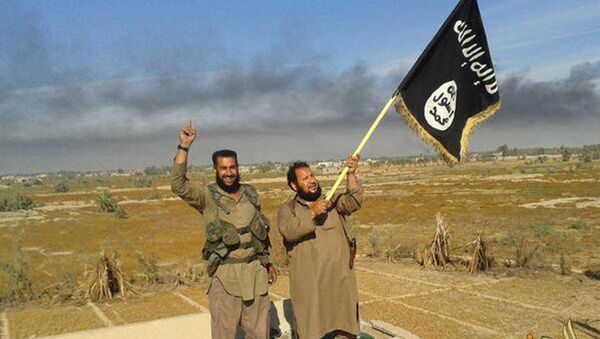The group has been deprived of its primary moneymaking sources for a number of reasons, which has adversely affected its ability to pursue conflict, experts say.
"A problem they face is that much of their income over the last two years has been through conquest, confiscation and extortion, and those are all one-time things that aren't sustainable," said Quinn Mecham, an assistant professor of political science at Brigham Young University, as cited by The Washington Post. "And now they're losing territory, and that makes it difficult to continue to extract revenues."
Since Russia started carrying out its air campaign against Daesh at the request of the Syrian government on September 30, targeting the organization's key oil-producing areas, the group's illegal oil trade has fallen by 50%.
British warplanes have also stepped in and started to bomb targets in Syria on Thursday.
Terrorism analyst Colin P. Clarke said he expected the group's finances to suffer more as the airstrikes intensified.
According to Senior Middle East Analyst from Jane's Information Group Columb Strack, Daesh has already cut fighters' wages from $400 to $300 per month.
After Kurdish forces recaptured major territories, the terrorist group, Daesh had to increase tax burdens on territories it has still under its control, with a population of 6-9 mln people.
Daesh seized vast territories in Iraq and Syria in 2014, seeking to establish a caliphate ruled by strict Sharia law. It is trying to expand its influence and fighting against the official authorities of these countries. Russia has outlawed Daesh on its territory, classifying it as a terrorist organization.




